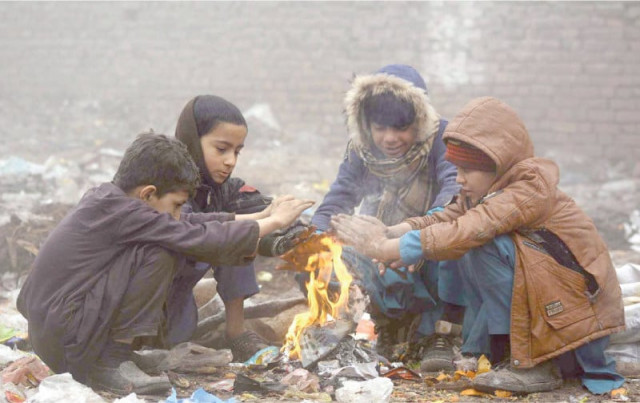Dense fog paralyses life in twin cities
Islamabad, Pindi grapple with flight delays, health concerns & business slump

The persistent absence of rain has cast a dense fog over Islamabad and Rawalpindi, causing chaos in the twin cities as it disrupted daily life while impacting road and air travel. Early morning flights, both domestic and international, faced delays and disruptions, as did rail services and vehicular movement on city roads and motorways as visibility dropped to a mere 50 meters in some areas.
The Islamabad International Airport was enveloped in fog by 11pm on Saturday, causing further complications for air travel. The adverse weather conditions are expected to persist, affecting daily life and raising concerns about the well-being of residents. Surge in pneumonia The chilling temperatures, exac- erbated by the lack of sunlight, have led to a surge in pneumonia cases.
Hospitals are witnessing over 200 patients daily with complaints related to extreme cold conditions. Doctors are advising people to stay warm, cover their heads and ears, and increase liquid intake, particularly soups, to minimise the effects of the dry cold. The health department emphasises the necessity of staying warm and wearing masks to combat the adverse effects of the fog.
Read Fog, drought push food prices higher
As the fog’s intensity gradually increases from 8pm until sunrise, the darkened skies contribute to a heightened cold atmosphere. The fog poses significant challenges for schoolchildren, commuters, and employees, making daily routines difficult. According to sources, public hospitals are witnessing a rise in pneumonia cases, particularly among children.
Doctors advise parents to safeguard their chil- dren from the cold and discour- age outdoor activities during foggy conditions. Environmental experts assert that the escalating fog can only be alleviated by rainfall, which not only clears the air but also mitigates the severity of the cold.
Talking to The Express Tribune, Dr Ijaz Ahmed, Chief Executive Officer of the District Health Authority, highlighted the continuous surge in fog intensity, leading to a corresponding in- crease in cold related respiratory diseases. “The ongoing drought exacerbates the situation, contributing to a spike in pneumonia cases,” he said. Dr Ahmed urged the residents of the twin cities to adopt precautionary measures, including wearing warm clothes and masks and consuming hot water, when leaving their homes in the foggy and cold conditions



1724319076-0/Untitled-design-(5)1724319076-0-208x130.webp)















COMMENTS
Comments are moderated and generally will be posted if they are on-topic and not abusive.
For more information, please see our Comments FAQ